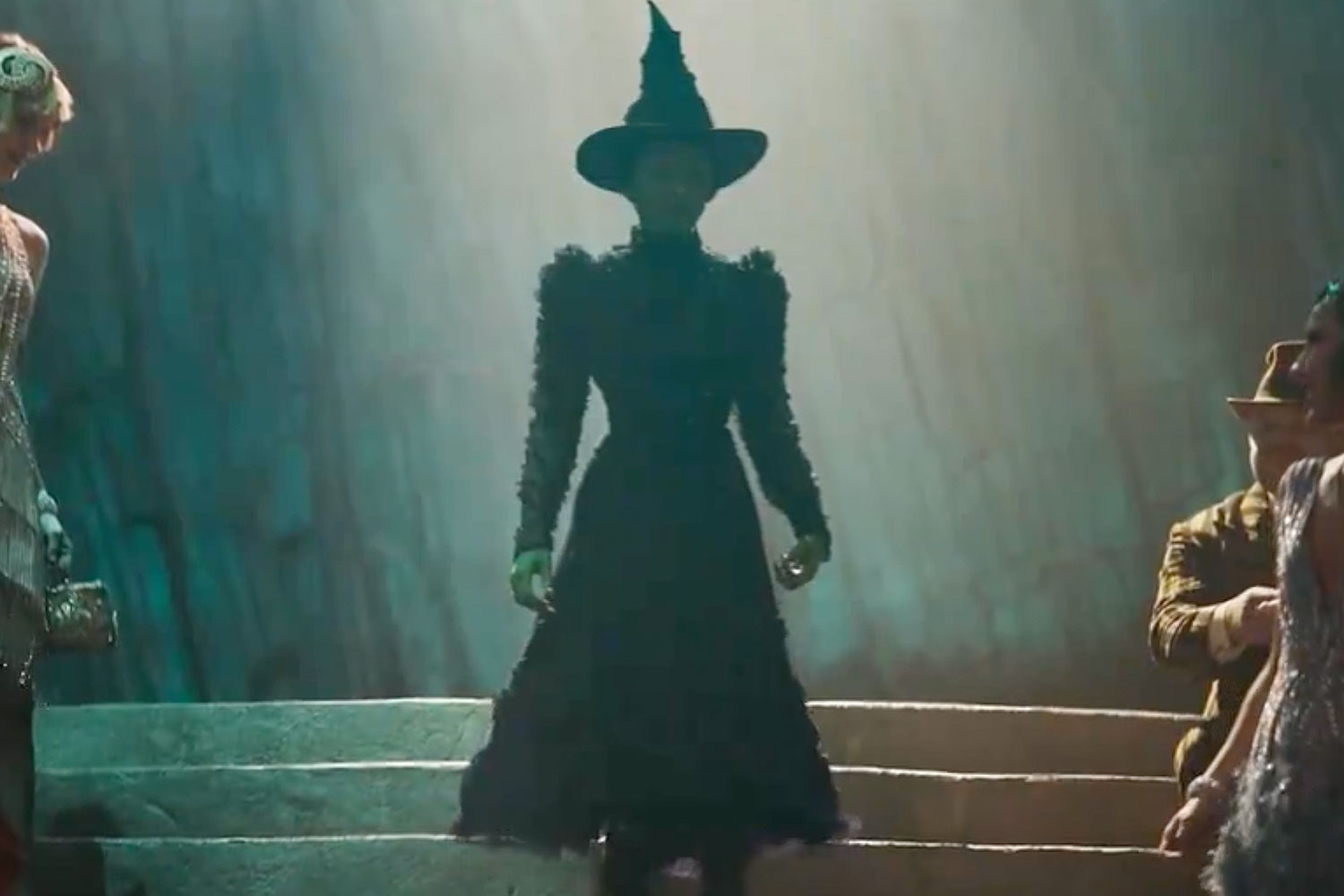Arts Orgs Across England React to ACE Cutbacks
Arts Council England (ACE) has today (30 March 2011) announced how it is “strategically” doling out its four years’ worth of government funds, which were reduced by 29.6% as part of the Coalition Government’s widespread public spending cuts, announced in November.
For a full list of companies who are receiving funding as part of the National Portfolio as well as analysis can be found in our news story. We have also been live tweeting throughout the day, with all of that coverage available in our live coverage story.
Please note: We will be adding to this story throughout the day. If you would like to add your reaction, please email editorial@whatsonstage.com or join the discussion on Twitter by following us at @Whatsonstage.
Below we have reaction from a range of organisations who have been affected by today’s announcement. Click on the name to jump to their statement.
Michael Attenborough & James Bierman, artistic director & executive director respectively of the Almeida Theatre
“The Arts Council, today described the Almeida Theatre as ‘an exemplary organisation, internationally synonymous with bold play choices staged to the highest possible standards with outstanding production values’. The Almeida’s work is delivered to over 90,000 people each year alongside over 10,000 young people who take part in our Education programme. Whilst the Arts Council cut to our funding equates to 20% in cash terms over four years or less than 10% of turnover, there will be no cuts to our innovative artistic policy or to our ambitions. In the coming years we will take our work to more people than ever before and continue to be a leading national cultural institution.”
Nicholas Hytner, director of the National Theatre
“The National Theatre has no argument with the Arts Council. We recognise the pressing need to support organisations less well funded than we are, so a 15% cut in real terms over four years seems to us like a sensible decision in the circumstances.
“It is impossible not to lament the damage the Arts Council has been forced by the government to inflict. A few days after the coalition came to power, Jeremy Hunt addressed a gathering of arts leaders at the Roundhouse and promised us he intended to preside over a golden age for the arts. Dream on.”
Hull Truck Theatre chief executive, Andrew Smaje
“The news that we have retained our funding is extremely positive – not just for Hull Truck Theatre and its employees, but for the city of Hull and the East Riding. The theatre plays a fundamental role not only in the cultural life of the area, but also in its economy.
“ACE’s report provides a ringing endorsement of the fresh artistic vision at Hull Truck, as well as the new business model, which is seeing a greater diversity of plays and artists working for and with the theatre.
“Hull Truck engages with a huge range of organisations and people from all walks of life, not just here in Hull but across the country. In order to continue to deliver this level of work, it was vital that we retained our ACE funding.
“While today’s announcement is positive for Hull Truck, other arts organisations in our region and around the country will be receiving less good news. We join their concern that these cuts will impact significantly on the nation’s creative life.
“With Hull City Council cuts of £100,000 about to come into place from next month, we have a major task to build sustainable relationships with corporate funding partners over the next five years. We need this to grow audiences, nurture new talent and create inspirational performances which will cheer us all during difficult times.”
Tom Morris, artistic director of Bristol Old Vic
“We should all be clear what is happening here. ACE has been asked to make big cuts and to be progressive too. There is no way to make this scale of cut without making horrible and unpopular decisions.
“Bristol Old Vic is lucky enough to be in receipt of a standstill grant; this is good news for us and good news for Bristol. In addition, we’re excited about a new conversation with ACE about how they can support us in developing touring work. However, many organisations and cities have not been so fortunate. It would be easy to blame ACE, but this is not their fault. They have been set a riddle to which there is no fair solution.
“The arguments about the fantastically efficient economic and human impact of arts investment have been brilliantly rehearsed over recent weeks, but this is not the main issue today.
“People across the public sectors should take note of today’s news, not because the arts should be favoured at the expense of health or education or benefits, but because similar cuts will soon be made across the board in all sectors. We can see the detail of our sector early, because ACE has decided to give us as much time as possible to plan.
“Surprisingly, this is not a party political issue. There are many people who support and belong to all three major parties who agree that the scale of cuts across the public sectors is too high. In the face of today’s news, we should stand beside doctors, teachers, policemen, lawyers, local politicians and the many, many voters across the country to argue for a more enlightened approach to deficit reduction.”
Artistic director of Sheffield Theatres, Daniel Evans
“Today is a significant day for Sheffield Theatres and the wider arts ecology in England. We are fortunate that the Arts Council has awarded us funding. Sheffield Theatres works with a host of other partners in the city and across the country who will also learn of their funding future this morning and today’s decisions pose a challenge for us all. As we look to the future we will take the opportunity to reflect on today’s news and on the best way forward.
“We intend to forge new partnerships and find surprising, innovative and enriching ways to connect with our communities. At the centre of our celebrations will be the launch a major new initiative, providing ongoing opportunities for Sheffield’s emerging theatre makers, young and old, to come together to create an annual and unique piece of work for the Crucible stage.
“At such a critical time for the arts in the UK we feel privileged that we have an opportunity to ensure that Sheffield Theatres remains at the forefront of the country’s cultural life.”
Nancy Meckler & Polly Teale, co-artistic directors of Shared Experience
“We are shocked and disappointed to hear that we will receive no National Portfolio Funding from 2012 to 2015. We feel strongly our work delivers the Arts Council’s goals and we are devastated by their decision. We will now take time to consider fully where we stand and explore how we will continue beyond 2012. We very much hope to find a way to continue our new partnership with Oxford Playhouse as their resident company.”
Secretary of State for Culture, Olympics, Media and Sport Jeremy Hunt
“While this is obviously a difficult day for many arts organisations the Government has limited cuts to frontline arts organisations and at the same time increased significantly the amount of Lottery money going to the arts. This means that the Arts Council’s overall annual budget will reduce by £20 million (11.8%) by April 2015, putting it in a much better position than many other parts of the public sector.
“The UK has some of the best culture in the world and we are doing all we can to support it through the challenges of dealing with the deficit, including measures to boost the amount of private giving going to the arts.”
Ben Todd, executive director of the Arcola Theatre
“Arcola Theatre is delighted by the news that our annual funding from Arts Council will increase from approx £150k to £300k per annum from April 2012. This brings the level our Arts Council subsidy to approximately 30% of turnover – still relatively low compared with many others, but exactly what we need in order to continue to develop contemporary productions which excite and challenge audiences from across London.
“After 10 years of working on a shoestring to deliver excellent work, this grant will allow us to do further improve the quality and consistency of our work and to reach more people. It will also allow us to further bolster our flourishing youth and community arts programmes, which we have continued to deliver, despite significant loss of funding over the past 18 months, thus ensuring that Arcola continues to provide the very best theatre for and by its community.
“As well as revenue through increased ticket sales, we will also be working over the coming years to develop other non-subsidy streams to ultimately reduce our dependence on public funding.
“In this time of deep cuts across the arts, we are only too aware that other well deserving organisations have not had such good news and we will redouble our work in supporting great work by artists who do not necessarily have finance behind them.
“We are grateful to ACE for their continued support of our work through these challenging times and to London Borough Hackney for their support in securing our premises for the long-term.”
Perfect Pitch producer Andy Barnes
“Obviously Perfect Pitch are delighted to have been selected for funding given the tricky decisions ACE have had to make. It’s wonderful to see new musicals being supported at grass roots level and our work acknowledged as making a difference to the sector.”
Colin Tweedy, chief executive of Arts & Business
“This morning (Tuesday 26 October 2010) we received our funding settlement from Arts Council England. We will receive £1.92m for one year only for 2011/2012. This is a 50% cut. We will have no core funding after April 2012.
“This is an extraordinary and potentially very damaging decision for our cultural and commercial partners. As John Whittingdale, chair of the DCMS Select Committee, in his question to the Secretary of State in the House yesterday, asked – why is it that at the very time the cultural world is looking to work more closely with business and individuals, are attempts being made to dismantle the very body that carries the hopes of the private sector?
“To many of our private sector partners it will seem that our country has no strategy, no vision and no understanding of the needs of frontline arts fundraisers for an independent voice. At this time of economic recovery, instead of building on what has been learnt, our private sector partners believe that the Arts Council has dismantled our public realm work – to little purpose and with even less of a plan. In effect our work is to be nationalised by a quango. This decision does not fit comfortably with the Government’s vision of the Big Society.
“Arts & Business believes, as John Whittingdale said yesterday, this is a ‘rather strange decision.’ Our future path will be mapped out in the months to come. But our first priority is to support our colleagues nationwide at this difficult time.
“Our commitment since our foundation in 1976 has always been to serve the private sector and our cultural community. We very much hope that we will be able to continue that mission going forward.”
James Grieve & George Perrin, artistic directors of Paines Plough
“We are naturally very pleased to be part of the National Portfolio and are grateful to ACE for its support.
“We are mindful of how fortunate we are to be custodians of public subsidy, and we will strive to ensure Paines Plough delivers programmes of work that offer audiences everywhere a real return on investment.
“Paines Plough never works alone. In 2010 we co-produced with 17 other companies and collaborated with 16 more. Through these valued relationships, we see first hand the passion, skill, tenacity and entrepreneurialism of the arts industry in Britain.
“Now is the time to stick together. Our anger and frustration at these ideological cuts is tempered by a fervent belief in the resilience of our industry and its capacity to adapt and change. Through greater collaboration and ever more innovative partnerships we can respond positively to the challenging times ahead by continuing to make theatre that is the envy of the world.”
Chairman of the Roundhouse, Christopher Satterthwaite
“We are delighted and grateful that Arts Council England has recognised the quality and innovation of the work at the Roundhouse and that we will be part of a network bridging opportunities between arts organisations, children and young people, families and schools. We’re a young organisation, just going in to our fifth year, and while like so many others we still face funding challenges we’re committed to providing opportunities for 11-25s to develop their talents and their future through involvement in the arts.
We realise though that other organisations may not have been so fortunate, and we’re committed to working together to maximise the impact of the available funds to ensure that audiences, and particularly young people, gain the greatest benefit.
Today’s news means that we can confidently plan for the next three years ensuring that, as an organisation, we are not only sustainable and resilient but can also be exciting and innovative.”
Tracy Cooper, chief executive of artsdepot
“We are delighted to receive national portfolio status, which allows us to look forward to a bright future for artsdepot. We are pleased the Arts Council has acknowledged artsdepot as a vibrant, valued and successful venue, allowing us to maintain our integral role in the local community.
“We are grateful to the Arts Council, as this decision allows us to confidently plan for artsdepot to remain a vital part of North London life.
“artsdepot will receive £300,000 in 2012, with inflationary increases till 2015. The funding softens the blow struck by Barnet Council’s decision to cut our core funding by 100%, a yearly loss of £194,000.”
Equity president Malcolm Sinclair
“I fear that this is a move away from artistically lead local theatres producing work for local people. This hits at the very heart of our theatre.
“The United Kingdom is a world leader in the performing arts – theatre, film, television – not because we are somehow naturally good at it, but because as a society we nurture it. Government cuts to the arts spell the end of that nurturing and could also spell the end of the UK being seen as a beacon of world theatre.”
Equity council member Samuel West
“The government must understand the consequences of a 30% cut to the arts budget together with a 28% cut to local authority funding. The arts are being squeezed on all sides.
“We’re looking today at the results of a cut of £100m to Arts funding. That’s just 10% of the figure awarded in bonuses to RBS bankers this year. The creative sector is the second most profitable one in this country. But for how much longer? The impact of these cuts will be greatest on the smaller organisations, particularly in the regions and rural areas. These are the groups that provide the lifeblood of our great national institutions. Cut support to those lower down the pyramid and eventually those at the top will starve.”
Marcus Romer, artistic director of Pilot Theatre
“Pilot Theatre are delighted to announce that we will be part of the National Portfolio of organisations funded by Arts Council England. We received information this morning that has confirmed this and we will continue to be funded up to 2015.
We would like to take this opportunity of thanking all our team who have worked with us on this bid, and to Arts Council England for supporting our new programme of activity in these difficult financial times.
“Collaborations will continue with our partner venue York Theatre Royal, as well as new works with SlungLow, Paines Plough, Watershed, HideandSeek, Contact and Theatre UPB in Buenos Aires. Our international work will further be developed with a new commission for our EU Platform 11 project across 12 countries that will tour in 2012.
“Whilst this is unbdoubtedly a positive result for Pilot Theatre, this is not a time for any organisation to feel triumphant, as the country will be a poorer place as a result of these cuts. We also recognise the difficult position that ACE has been put in with the settlement they received from Government. So it is important to remind ourselves where the cuts and the imperative for them stems from.
“It is vital that all organisations and the sector remain strong at this time and that we find ways of collectively nurturing artistic talent, skills and audiences during these coming months and years. As part of this we will be extending the Arts Funding Ning to become a site for collaboration, ideas and future development.”
Artistic director of the Royal & Derngate, Northampton, Laurie Sansom
“These are tough times for everyone in the arts sector and an uplift in any form should be welcomed. We acknowledge that there are many organisations that have not fared so well, and that the national and regional picture for the arts is, at this time, precarious.”
David Brownlee, chief executive of Audiences UK
“The rationale for this blanket decision is hard to understand given the priority given to increasing and broadening audiences in the Arts Council’s strategy for the next ten years and the excellent assessments of the proposals submitted by many of the agencies. Arts organisations receive more funding from their audiences than any other source and we have seen audience numbers continue to grow in the last three years, despite the recession. We believe long-term investment in the audience development infrastructure has helped the sector to weather the financial storm so far.
“It also seems strange at a time when Arts Council England is taking on a broader cultural remit to threaten the sustainability of an internationally renowned support structure that is already working effectively with museums and beginning to help tackle the major issues facing Library Services.
“We are heartened to see a public commitment has been made to allocating strategic Lottery funds to support Audience Development, although we are not clear about the amount allocated and believe this area should be treated as a priority for core Treasury funding and not as an area of ‘additionality’ funded by Lottery ticket buyers. However we will do all we can to help Arts Council England ensure the needs of current and future audiences remain a priority and that the cultural sector has the skilled support that will help them understand and grow their audiences in these financially challenging times.”
Artistic director of Trestle Theatre Company, Emily Gray
“Over the last four years Arts Council England has invested significantly in Trestle to enable the company to explore and develop an exciting new style of physical storytelling. Trestle’s current production, The Birthday of the Infanta, is receiving rave reviews. It is ironic that, at the moment that this new style comes to fruition, ACE is wasting that investment and denying audiences and venues around the country the opportunity to be engaged by the exciting and high-quality theatre that Trestle offers.”
Michael Boyd, artistic director of the Royal Shakespeare Company
“The arts remind us what it is to be human and thousands of arts organisations play a significant role in the social and economic life of communities throughout the UK.
“As we start to hear the news from across the arts world today, it’s clear the consequences of the cuts will be far-reaching for many people and places. ACE has faced an impossibly difficult task in rebalancing its grants after a 29.6% cut in government funding, but I know they have tried hard to be strategic and our experience of the application process was that it was fair and open.
“For our own part, I’m pleased that we are well regarded by ACE and assessed as making a strong contribution to their goals. We are receiving significantly less than we asked for over the next four years and we won’t be able to do all that we planned, but we will work hard with ACE over the coming months to consider what this means for our work and our audiences.
“My real concern is for those organisations who have been cut completely, and those who also face local authority cuts too. The pace of change will be hard for many to take and philanthropy for revenue funding cannot move that swiftly.
“There’s an important role for us, and other big organisations, in helping others both in the West Midlands and nationally, through finding ways to share back office skills and fundraising expertise and continuing our artistic collaborations with the many, many individual artists, smaller theatre companies, schools and amateur groups whose work we already support.
“I hope we will see some longer term thinking from government about arts funding. Whilst there is some positive news about the incredible generosity of individual donors and some tax breaks in the budget, a culture of philanthropy needs more financial incentives at all levels to sustain it. And I would like to see more collaboration between government departments which recognises the value of the arts across many other areas of policy – in education, tourism and inward investment just as much as culture.”
Mark Smith, artistic director of Spike Theatre
“Spike wholeheartedly supported ACE in its new application process and we are pleased that the new companies ACE has taken on will not the face the same difficulties as we have, that of being reliant upon additional Arts Council funding to produce work. It is galling that our current level of funding has contributed to our struggle for sustainability and that Arts Council’s low level of past investment has damaged our case for future funding.
“We are working with our Board to alter our strategy and business plan to accommodate this loss but this may not be possible in the current financial climate. If we cannot find a way to continue without investment beyond 2012 we feel the theatre ecology of the North West will be the poorer for it.
“We would like to thank all of those who have offered their support and kind words and especially our supportive venue partners. We greatly appreciate them.”
Artistic director of the Rose Theatre, Kingston, Stephen Unwin
“We are very disappointed by today’s news. The Arts Council made its goals clear, and the Rose’s application demonstrated that we are meeting those goals: through the quality of our home-grown productions, our extensive programme of community engagement, and our work with and for young people. 350,000 people have visited the Rose since we opened in January 2008 and 50,000 have been involved in Rose Plus, our award-winning Learning and Participation Programme.
“With cuts announced for the Waterman’s in Hounslow, the Orange Tree in Richmond, the Battersea Arts Centre in Wandsworth and Riverside Studios in Hammersmith, the funding situation in South West London is now worse than ever and the contrast with East London – especially the Olympic Boroughs – is stark. It’s clear that a large part of the Mayor of London’s cultural strategy has been ignored:
“‘Cultural provision varies markedly across the capital. This is especially the case with the outer London boroughs where the sector faces particular challenges in terms of resources and recognition, receiving significantly less on average from both local and regional funding bodies. (Cultural Metropolis, 2010)'”
Max Stafford-Clark, artistic director of Out of Joint
“Yesterday, Out of Joint was told it would have its Arts Council England (ACE) funding cut by 27.9%, which means we will have £138,218 less from 2012. Liz Forgan says there is a clear intellectual framework and rationale behind the cuts. I must say it is hard to see that from our perspective. We are commended for excellence, yet condemned to mediocrity by removing the structure that makes excellence possible.
“We are determined to survive, and not to substantially change the work we do. What makes Out of Joint’s work special is the ambition and scope of the plays we produce, by some of the country’s leading and most exciting writers, and the resources we have been able to focus on creating them.
“We pay our writers fairly (we guarantee a minimum of £20,000 for a produced play). We pay our actors slightly over the equity minimum, which enables us to attract established actors to tour with us, to deepen and dignify the work.
“If the Arts Council is genuinely committed to touring it needs to support tours of this scale and ambition. Our own cut, combined with cuts to the theatres to which we tour (such as the Theatre Royal, Bury St Edmunds, and Exeter’s Northcott Theatre), will restrict the reach of our work.
“This has provoked a crisis for Out of Joint, but it’s also a crucial point for the Arts Council itself. Does it really wish to destroy one of the few companies which can create important new plays that find a place in the national – and international – repertoire, and which performs that work at the same high quality in venues ranging from major London theatres to playhouses and community centres throughout the UK.”
President of the Writers’ Guild of Great Britain, David Edgar
“It’s difficult to see an overall picture while the full list of winners and losers is still emerging. We welcome that there appear not to have been any major new writing casualties. However, the savage cuts to the Almeida and Out of Joint are particularly worrying for new writing in London. We’re pleased that the Arts Council has not chosen to cut new writing agencies. But the overall picture is of a sector that is being severely squeezed, with most theatre companies facing cuts of over 10% in real terms, on top of cuts imposed last year. There will be a temptation to cut back on new work which must be resisted. It is also vital that the sector prepares the arguments for renewed funding in the future, both nationally and locally.”
Also visit our dedicated Cuts Watch page, which we’ll continue to update as we gather responses from theatres, industry leaders and arts organisations. Publicists can email contributions for publication to editorial@whatsonstage.com. Please also add your views to User Comments at the bottom of stories.










